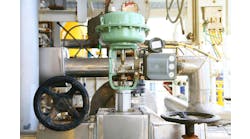Now this is more along the lines of things that ISA should be doing-- raising the awareness of folks both in North America and in Europe about the Automation Competency Model they've been working on with the U.S. Department of Labor:
Automation Federation Participates in United-States – European Union Roundtable Discussion on Economic Recovery
Research Triangle Park, NC (3 June 2009) - The Automation Federation was invited to participate in a United States – European Union Roundtable to discuss “Skills for Growth and Jobs in the Economic Recovery and Beyond.” The Roundtable held May 28-29, in Washington, D.C., centered on workforce development strategies for economic recovery, with a focus on employment strategies that the U.S. and the EU could share to help promote economic recovery.
The U.S. Department of Labor (DOL) extended the invitation to the Automation Federation to participate in the Roundtable because of their strategic partnership, particularly in the arena of workforce development.
The Directorate-General for Employment, Social Affairs and Equal Opportunities for the European Union, Xavier Prats-Monnè, led the European Union (EU) delegation of twenty-one individuals, representing the twenty-seven EU countries participating in the Roundtable.
Deputy Assistant Secretary for the Department of Labor, Douglas Small, led the twenty-four individuals representing the United States, which included Michael Marlowe, director of government relations for the Automation Federation.
Gay Gilbert, DOL administrator, discussed the importance of Competency Models for the development of worker skill sets for future economic recovery efforts. In her presentation, Gilbert highlighted the completed Automation Competency Model, developed by DOL with the assistance of the Automation Federation. She also noted that the European Union would find value in developing strategic partnerships similar to what the DOL and the Automation Federation have built.
Michael Marlowe met with Xavier Prats-Monnè to discuss the Automation Federation and their workforce development initiatives, including the Automation Competency Model. The initial feedback from Prats-Monnè was positive. Subsequent to the Roundtable, the Automation Federation and the European Union have agreed to further discussions regarding the Automation Competency Model and how it can be utilized by the members of the EU.
Steve Huffman, chair of the Automation Federation government relations committee said, “The Automation Federation’s participation in this significant meeting between the United States and the European Union provides the Federation with an excellent opportunity to raise the awareness about the Automation Competency Model on a global front. The Model will become international and recognition for the automation professional will be established globally.” [bold added -ed.]
After the Roundtable, Marlowe and Gilbert met with Melvin Brodsky, director of Organisation for Economic Co-Operation and Development (OECD) for the Department of Labor. At this meeting Brodsky expressed his willingness to work with the Federation to help expand the message and importance of the Automation Competency Model to additional countries.
Marlowe commented, “The DOL has helped the Federation introduce the Automation Competency Model beyond U.S. borders through new communication opportunities. The partnership between DOL and the Automation Federation continues to be a great asset. These opportunities—the Roundtable and the OECD—will help take the Automation Competency Model global and thus bring the Federation closer to our goal of establishing due recognition for automation professionals.”



